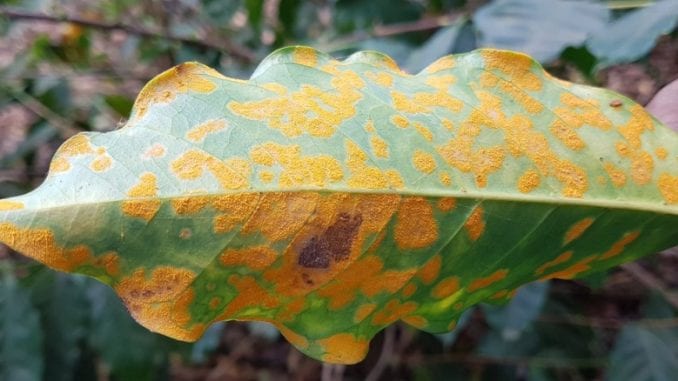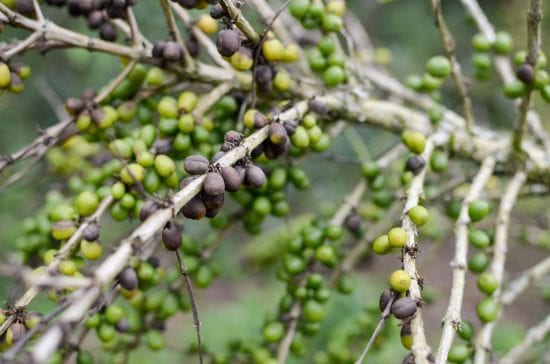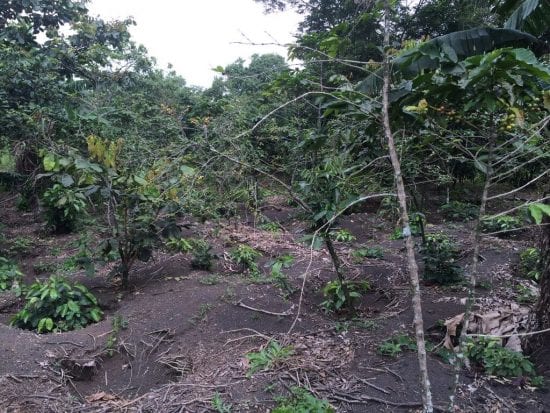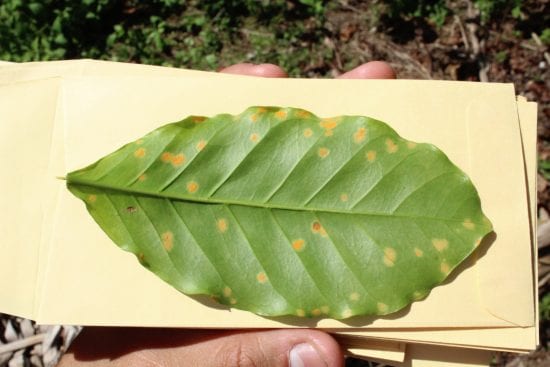
World Coffee Research confirms through genetic testing that the variety, which was planted across Honduras for its resistance to coffee leaf rust, has stopped resisting the disease.
BY CHRIS RYAN
BARISTA MAGAZINE ONLINE
Cover photo by Salvador Urritea
In recent weeks, reports surfaced from Honduras that coffee leaf rust, the airborne fungal disease that has devastated coffee production throughout Latin America in recent years, had returned to the country and was attacking trees thought to be disease-resistant, including those of the Lempira variety. IHCAFE, Honduras’ national coffee institute, also reported rust infections of Lempira.

That news has now been confirmed: On Friday, nonprofit research group World Coffee Research issued a press release stating that the Lempira variety is susceptible to coffee leaf rust, as confirmed by DNA fingerprinting. “Samples of leaves were collected from two locations—a heavily infected farm in the eastern part of the country, as well as ‘mother’ plants for the Lempira variety maintained by IHCAFE,” the press release states. “The tests were positive, confirming that Lempira is indeed now susceptible to rust.”
Lempira is a high-yielding variety developed by IHCAFE that was widely planted in Honduras following the coffee leaf rust outbreak that began in 2012. World Coffee Research says in the press release it is unclear why Lempira is now affected by rust, but there are two possibilities. One, a race of rust that was previously present in Honduras has mutated to overcome Lempira’s rust resistance. Two, a rust race that wasn’t in Honduras before has entered the region. IHCAFE has collected spore samples to identify the rust race and sent them to a research facility in Portugal; results are expected in August.

While the news of Lempira’s susceptibility to rust is certainly concerning to the coffee trade, Honduras is managing the disease at the moment. IHCAFE told World Coffee Research that as of April, the country’s incidence level of coffee leaf rust was 6 percent. In March, though, 18 percent of Lempira farms questioned in a survey reported an incidence level of more than 10 percent. Concerns are heightened as well about what the coming weather will bring: IHCAFE is cautioning farmers of possible rust attacks when the rains arrive later this month.

It is not yet clear how Lempira’s vulnerability will affect Honduras’ coffee production; it is also unclear how Lempira will perform against disease outside of the country. World Coffee Research is currently working with sites that took part in its International Multilocation Variety Trial—a global monitoring system of pests and disease in coffee-producing areas—in 24 countries to see if Lempira is affected outside of Honduras. Additionally, World Coffee Research is bringing together experts at the end of May—before the start of the World Coffee Science Summit in San Salvador, El Salvador—to develop a regional and global action plan to fight coffee leaf rust.

